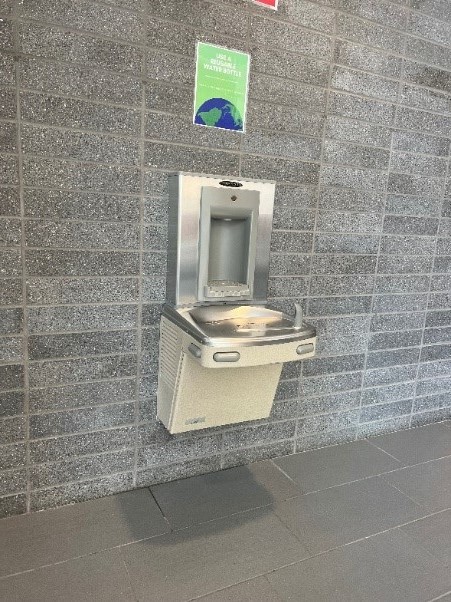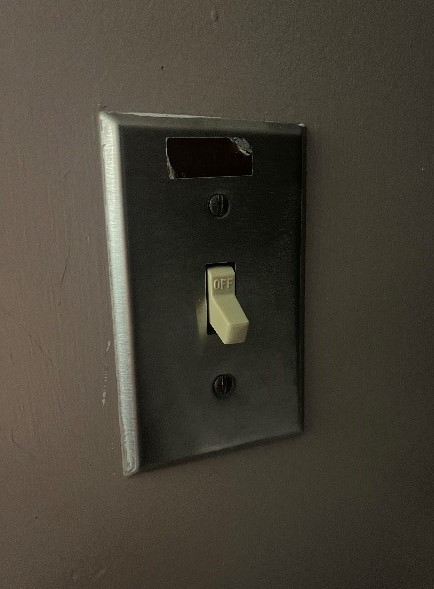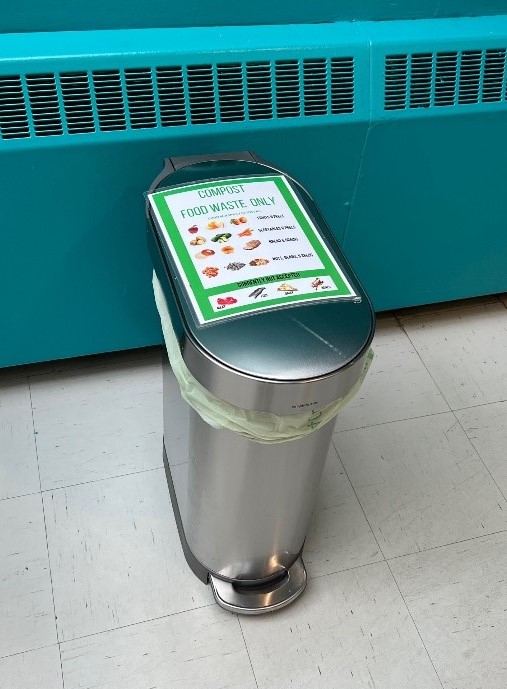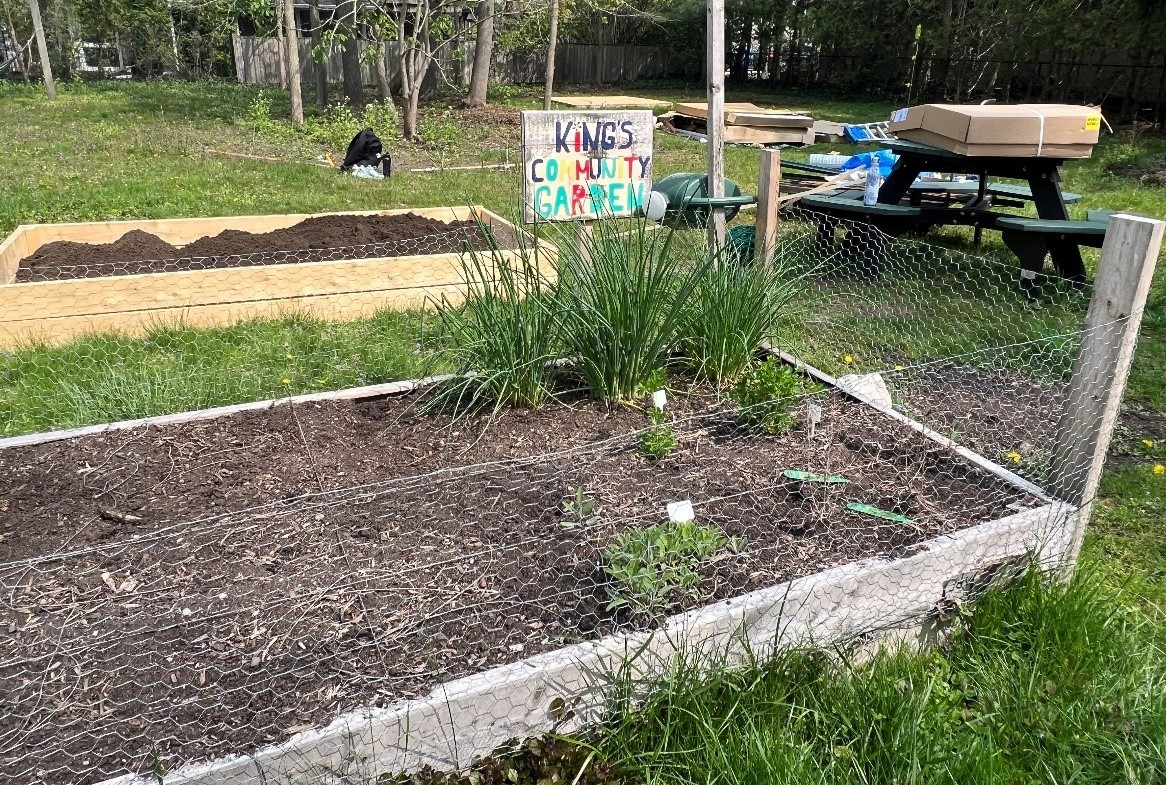Sustainability Tips
Sustainability is all about finding ways to reduce our impact on the planet and live in a way that is more mindful of the resources we use. Small adjustments to our everyday lives can make a big difference for the environment and for our own wellbeing. There are many ways we can live more sustainably, especially at King's University College. The following sustainability tips cover a range of areas, from daily living, transportation, residences, and communities. You can contribute to building a more sustainable future for everyone by implementing these suggestions into your daily life.
Visit King's Green Map to see where you can put your compost and recyclables, charge your EV or park your bike.
Daily Living
-
Bring a reusable water bottle: Avoid plastic water bottle waste and enjoy one of the many water bottle refill stations around campus. Quench your thirst and save the Earth!

-
Rethink the types of products you purchase: Look for products with minimal packaging, those made with recycled material, and things produced locally.
-
Pack garbage-less lunches: Save money and avoid unnecessary waste from disposable plates and utensils.
-
Minimize packaging and disposable options: Consider carrying your own cutlery or dishware when you know that you’ll be eating food while out. Bring your own reusable grocery bags when shopping – there are many that can be rolled up to fit in your pockets or purse, making it easy to always have one at hand. Reduce pre-packaged condiment waste and napkin waste by not taking more than you need.
Traveling
-
Use public transportation: Taking public transportation, such as buses or trains, is a great way to reduce your carbon footprint.
-
Consider alternative modes of transportation: If you live close to campus, consider walking, biking, or carpooling when you can. Walking and biking are not only more environmentally friendly but also great ways to stay active, while carpooling with coworkers or friends reduces the number of cars on the road and saves money on gas.

- Maintain your vehicle: If you drive, make sure your vehicle is in good condition and is operating well. Regular maintenance and tune-ups can help improve gas mileage and reduce emissions.
In Residence or at Home
-
Reduce water consumption: Take shorter showers. Fix any water leaks (taps, toilets, etc.) immediately, or report them to your landlord. If you have a dishwasher, wait until it is completely full before running it. Don’t leave the water running while brushing your teeth. Install low-flow faucets and showerhead fixtures.
-
Unplug appliances and electronics when you are not using them: Appliances and electronics left plugged in still use electricity, even when not in use. Plugging them into a power bar makes unplugging easy and convenient.
On King's University College Campus
-
Use reusable mugs: Bring a reusable mug to campus and get 10 cents off every hot beverage purchase at on-campus Tim Hortons, Starbucks, or the cafeteria.
-
Turn off your lights and electronics: Switch off all lights before leaving a classroom, and shut down your computer if you’re going to be away from it for more than half an hour.

-
Print only when necessary and always print double-sided: Think carefully about whether you actually need to print something. If you do need a hard copy, make sure to print double-sided, if you can.
-
Reuse, recycle and compost: King's campus offers a range of reuse, recycle, and compost programs. Instead of throwing items away, it's important to understand these programs and utilize them effectively. You can find more information on the Recycling and Compost page.

-
Educate yourself: Take one (or more) of King's environmentally focused courses. These are offered in a range of disciplines, from Geography to English to Philosophy. Check out the Environmental Courses page to see your options.
-
Get involved: Join an extracurricular group or committee to engage in discussion and action on environmental issues. Visit the Get Involved page for more info.
In the Community
-
Support local businesses: Try to purchase products from companies that operate and source their products from within the region – not only will you be reducing impacts from transportation, but also supporting the local economy (and you’ll get fresher products too!).
-
Connect with your food: Grow your own food either at King’s Community Garden, in your own backyard, or rent a community garden plot in town for the spring and summer months. Purchase local food from farmers markets or join a community-supported agriculture (CSA) organization.

-
Participate in community clean-up events: By participating in community clean-up events, you can help remove litter, debris, and other pollutants from the environment. This not only helps to improve the aesthetics of public areas, but also helps to protect wildlife and prevent environmental harm.
- (Gently) challenge the choices of those around you: Why is your dad idling his car for 10 minutes? How come your friend is throwing their food scraps in the trash? Why are your roommates buying mangos and strawberries in January?
